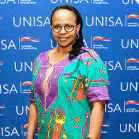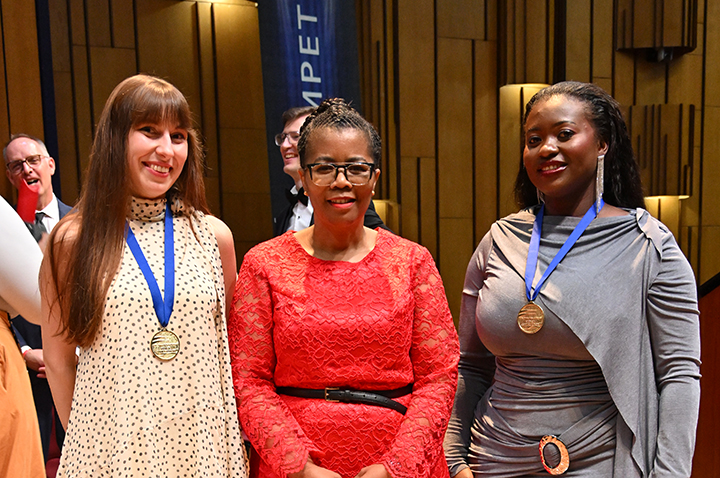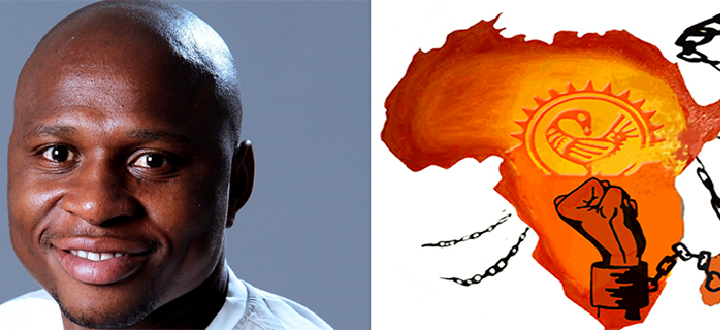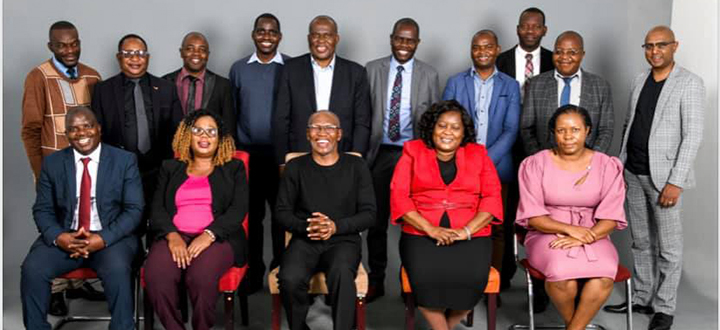
Equipped with state-of-the-art laboratories that provide students with hands-on experiences to bridge theory and practice
Dr Felix Donkor from the College of Agriculture and Environmental Sciences (CAES) weighs in on World Water Day, SDG 6: Water and sanitation for all by 2030, and Unisa’s role at the forefront of research and education towards sustainable natural resources management (including water) to realise the sustainable development goals.
A core theme in the sustainable development goals (SDGs) is the need for knowledge co-creation to inform policy and to form robust partnerships to drive sustainable development. One area where this has become urgent is the area of water resource governance and service delivery. Globally, over two billion people lack the most basic of water services. UN reports indicate that in 2015, three in ten people (2.1 billion) lacked safe drinking water and 4.5 billion people (six in ten) were without safely managed sanitation facilities.
Half of individuals lacking safe water sources are found in Africa. Moreover, in sub-Saharan Africa, only 24% of the populace have safe drinking water. Water is vital to sustainable development and is essential for socio-economic development, healthy ecosystems and for human survival. The effective management of water resources has implications for sanitation and hygiene (WASH). Thus, water is important for addressing the global burden of disease and enhancing the health, welfare and productivity of communities. This has become urgent given the prevailing coronavirus crisis.

Dr Felix Donkor
Water is also at the core of adaptation to climate change, which serves as the vital link between the climate system, human society and the environment. Thus, water resources are related with all aspects of development (eg food security, health promotion and poverty reduction) in sustaining economic growth in agriculture, industry and energy generation, and in maintaining healthy ecosystems. Moreover, poor access to clean water complicates sanitation and hygiene (WASH) presenting serious health challenges to well-being and the mobility of vulnerable groups such as women and girls.
Effective service delivery therefore serves as a vehicle for inclusive development and comes with multiple benefits for disadvantaged communities. This is more so in a country like South Africa which is often ranked as the most unequal society in the world. This has made water resources management a contested space where cross-cutting issues affecting the society are animated. This year’s celebration is unique as 2021 intersects with the final decade of action to deliver the SDGs as well as global efforts towards sustainable recovery from the coronavirus crisis.
The World Water Day is in celebration of water as a critical resource and increases awareness on the global water crisis. A core focus of the event is to facilitate the attainment of Sustainable Development Goal (SDG) 6: Water and sanitation for all by 2030. The theme for World Water Day 2021 (22 March) is "Valuing water". The value of water is beyond its price - water is of invaluable benefit for our households, food, culture, health, education, economics and the integrity of our natural environment. When these values are overlooked, it compromises the effective management of this finite, irreplaceable resource.
SDG 6 thus aims to safeguard water and sanitation for all. A lack of understanding of water’s true, cross-cutting value, exacerbates its effective management for the benefit of the global community. Unisa has been at the forefront of research and education towards sustainable natural resources management (including water) to realise the sustainable development goals (SDGs).
Last year CAES partnered with the University of Hamburg to organise the much acclaimed "Accelerating the Implementation of the Sustainable Development Goals in Africa" symposium. Participants addressed issues affecting effective water resources management and implications for realising the SDGs, among others. The outcomes, among others, chart sustainability pathways for water management in South Africa and Africa.
South Africa is a semi-arid nation, which also makes water a pressing issue. Recent events such as the 100-year-record drought and Cape Town’s experience of extreme "Day Zero" supply restrictions among others highlight some of the challenges. Section 27(1)(b) of the Constitution of the Republic of South Africa, 1996 (Constitution) guarantees everyone the right of access to sufficient water. Furthermore, Chapter 4 of the National Development Plan envisions a South Africa that acknowledges the value of secure and equitable access to water and sanitation as catalysts for socioeconomic development. Thus, there is a duty on all spheres of government to ensure that water and sanitation services are supplied in a manner which is efficient, equitable and sustainable. Nevertheless, the Department of Water and Sanitation (DWS) is mandated to protect and effectively manage the country’s water resources. Moreover, it is also authorised to provide adequate, reliable, clean water 365 days a year to support socio-economic growth.
As the celebration of World Water Day comes on the heels of two other events, namely the International Day of Women and Girls in Science (11 February) and World Women’s Day (8 March), it is necessary to highlight over-arching issues. Science and gender equality are critical to the water sector and attainment of the 2030 Agenda for Sustainable Development. Poor access to water services exacerbates sanitation and high-risk hygiene behaviours that entrap the poor (mostly women) in a vicious cycle of poor health, environmental degradation, malnutrition, reduced productivity and loss of incomes.
Among women and adolescent girls, the lack of privacy and dignity has adverse effects on health and safety, self-esteem, education and well-being. Gender equality is a worldwide imperative. Moreover, supporting young girls, their education and inclusion are critical levers for sustainable development and peace. However, significant obstacles prevent women’s full participation in science.
Unisa has introduced scholarships and support programmes to encourage women in science, including those related to water. Furthermore, the university will offer a Master’s Degree in Sustainable Development from 2022, aligned with the 2030 and 2063 Agendas, and aims to award degrees to 50 graduates by 2023. This complements national and global efforts to promote full and equal access to and participation in STEM for women and girls, as well as facilitate gender equality and the empowerment of women and girls.
Water is not only a critical resource for life but also a natural element that is pivotal to sustainable development. Water is essential for socio-economic development, health of the environment and for human survival. Access to clean water enhances economic opportunities. This is because water is vital to the production and preservation of a host of benefits and services for people.
Nevertheless, water is a finite and irreplaceable resource that requires effective management to ensure its continuous availability. Moreover, water can pose a serious challenge to sustainable development, but managed efficiently and equitably, water can play a key enabling role in strengthening the resilience of social, economic and environmental systems in the light of rapid and unpredictable changes.
* Submitted by Poppie Khoza, Communication and Marketing Specialist, College of Agriculture and Environmental Sciences
Publish date: 2021/03/23
 Unisa celebrates a project of hope, dignity and student success
Unisa celebrates a project of hope, dignity and student success
 Women vocalists take top honours at Unisa's globally renowned showcase
Women vocalists take top honours at Unisa's globally renowned showcase
 African wealth is dependent on investment in education and development
African wealth is dependent on investment in education and development
 Unisa celebrates matric result success at Correctional Services ceremony
Unisa celebrates matric result success at Correctional Services ceremony
 Unisa ICT Director recognised among acclaimed IT leaders
Unisa ICT Director recognised among acclaimed IT leaders